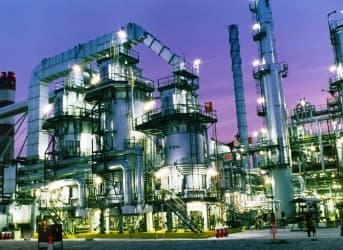Muammar Gaddafi ruled Libya for 41 years before an armed “Arab Spring” uprising last year drove him from power, leading to his death in October 2011.
In 1998 Gaddafi shifted his attention away from unequivocal support of Arab nationalist causes and shifted his gaze towards Africa, telling journalists, “I had been crying slogans of Arab Unity and brandishing the standard of Arab nationalism for 40 years, but it was not realized. That means that I was talking in the desert. I have no more time to lose talking with Arabs... I am returning back to realism... I now talk about Pan-Africanism and African Unity. The Arab world is finished... Africa is a paradise...and it is full of natural resources like water, uranium, cobalt, iron, manganese.”
Through the Libyan Africa Investment Portfolio, a subsidiary of the Libyan Investment Authority sovereign investment fund established in 2006, Gaddafi poured money into black Africa, including investing $375 million in Uganda alone. After the uprising against Gaddafi’s regime began in February 2011, East African countries froze Libyan assets, in accordance with a United Nations resolution.
The question is what now becomes of those investments?
Libya’s National Transitional Council (NTC) is now on a charm offensive to salvage some of the Libyan Africa Investment Portfolio’s projects, most important of which was LAIP’s Uganda based subsidiary Tamoil East Africa Ltd.’s (TEAL) Eldoret-Kampala pipeline, first proposed in 2006. TEAL owns 51 percent of the pipeline project in a public-private partnership with the governments of Uganda and Kenya, which share the remaining 49 percent. Thinking big, TEAL also promised to invest $300 million in upgrading Kenya’s Mombasa crude oil refinery as well as building a $60 million liquid petroleum gas (LPG) storage facility on Kenya’s Indian Ocean coastline.
The NTC will have an uphill task to convince the Kenyan-Ugandan Joint Coordinating Committee to allow continuing Libyan participation, as Kenya is pressing for complete disengagement with TEAL at a crucial JCC meeting convening in Kampala to review progress on the Eldoret-Kampala pipeline. Senior Kenyan Ministry of Energy officials, speaking off the record say that Kenya wants the Eldoret-Kampala pipeline multimillion-dollar deal, the largest surviving project by a Libyan company in East Africa, terminated and the project floated afresh to attract new partners. Nairobi maintains that TEAL has done essentially nothing to advance construction of the Eldoret-Kampala pipeline since the contract was awarded in January 2007. TEAL insists, to the contrary, that it has already spent $15 million on preparatory work on the pipeline.
Heightening NTC concerns about TEAL’s ability to retain its stake in the Eldoret-Kampala pipeline project, last August, two month’s before Gaddafi’s capture and death, the governments of Uganda and Rwanda unilaterally decided to terminate the pipeline’s Rwanda-Uganda portion of the contract because of TEAL’s failure to fulfill any conditions laid out under the pipeline’s subsequent 2008 Memorandum of Understanding. Uganda’s Energy Minister Irene Muloni stated, “The two governments have given a six-month termination notice to the company as per the MoU. The project will now be pursued under the East African Community framework.” TEAL chairman Habib Kagimu immediately responded, “We have replied to the notice with enough evidence to show that the governments have delayed the projects. We have so far spent $12 million on engineers, and there is paper work to show that we have surveyed the land from Kenya to Uganda and recorded every single farmer, but evaluating the land took the governments years.”
In February U.N. Security Council's financial sanctions freezing $170 billion in Libya's sovereign wealth fund subsidiaries were lifted following the recommendations of a U.N. panel of experts.
It is one issue for the United Nations to lift fiscal restrictions on Libyan foreign investments following “regime change” in Tripoli – it is quite another as to how the East African nations, formerly the beneficiaries of Gaddafi’s largesse, are going to proceed following his death. To paraphrase Gaddafi’s earlier comments about the Arab world’s ingratitude, in investing in black Africa from Kenya to Zambia, his legacy seems at end to be that he was “talking in the jungle.” Given Africa’s political instability and high levels of corruption, it may well be that Kampala, Bujumbura and Nairobi may well find it difficult to replace Libya’s earlier investments and might do well to reconsider the NTC’s interest in retaining TEAL’s participation in the Eldoret-Kampala pipeline at the very least.
By. John C.K. Daly of Oilprice.com


















